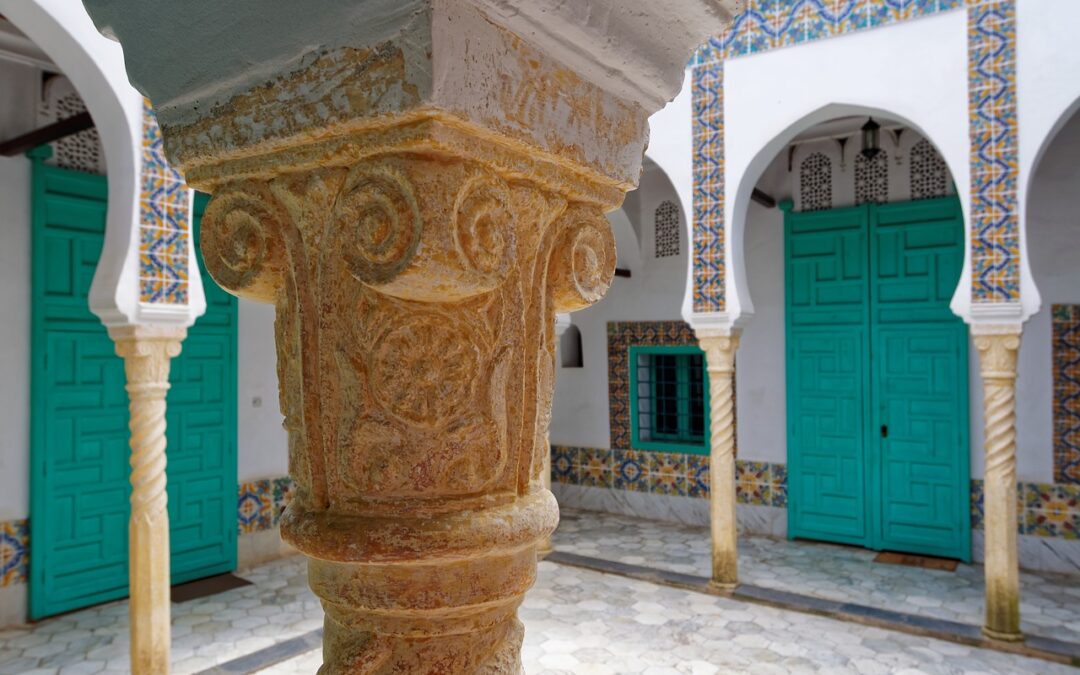Francis fiddles with “fraternity” while Africa burns.
The new Archbishop of Algiers recently said that Catholics must “abandon the idea that we have to evangelize and bring people to our truth.”
“At the same time,” continued Archbishop Jean-Paul Vesco, “we have to accept that there might be in Islam some truth that evades us.”
He has a point there. One of the Islamic truths that seems to escape the archbishop is that Allah has commanded that all the world be subjected to him.
Algeria happens to be a good example of subjugation by Islam. During the time of St. Augustine almost all of North Africa was Christian; now it is almost entirely Muslim. Algeria, for example, is 98.2 percent Muslim.
But, of course the “conversion” of North Africa to Islam happened many centuries ago. Why not let bygones be bygones? That was the recommendation of Nostra Aetate, the Vatican II document on the relation of the Catholic Church to non-Christian religions. After noting a number of similarities between Islam and Christianity, the document urges all to forget the “quarrels” of the past and to work for “mutual understanding.”
The only trouble with that advice is that the “quarrels and hostilities” of the past have come back. Islamists in Africa now seem intent on finishing the job they started in the 7th Century. They have North Africa under their belt, and now they want the rest of the continent. In almost every part of Africa, jihadist attacks on Christian churches and villages are an almost daily occurrence.
Is there anything Christians can do to reverse this trend? During the last two centuries, Christians were very successful in converting Africans through a combination of good works and evangelization. But Muslims have always been resistant to evangelization and now, thanks to prelates like Pope Francis and Archbishop Vesco, evangelization is off the table. Besides, as Vesco says, “evangelization happens through fraternity, not conversion.”
“Fraternity?” How’s that working? Just fine, says Vesco: “numbers give no indication of how fruitful a [Catholic] presence is.” That’s true. Considering that Catholics only make up about one-third of one percent of the Algerian population, the numbers only tell us that there’s a long way to go. Finding a Catholic in Algeria is almost as difficult as finding Pepe le Moko in the shadows of the Casbah.
But never mind. “Fraternity” is now all the rage in the Vatican. A few years ago, Pope Francis and Grand Imam Al-Tayyeb signed the Document on Human Fraternity in Abu Dhabi. The document declared that a deep bond of fraternity unites Christians and Muslims and, for that matter, all other religions.
Unfortunately, Islamic jihadists in Nigeria, Chad, Burkina Faso, Mozambique and just about every other country in sub-Sahara Africa didn’t get the message about human fraternity. As far as the true believers are concerned, only Muslims are fully human. And so, they continue to burn-down villages.
At a time when militant Islamists are terrorizing Christians in Africa, Iran, and, most recently, in Afghanistan, Catholic leaders keep treating us to rose-colored depictions of Islam that bear no relation to reality. In Evangelii Gaudium, Francis told us that “Authentic Islam and a proper reading of the Koran are opposed to every form of violence.” And the Document on Human Fraternity leaves us with the impression that the main teachings of Islam have to do with “tolerance,” “fraternity,” “equality” and “dignity.” Catholics are already ill-informed about Islam. The Abu Dhabi declaration only serves to further mislead them—and further endanger them. Any African Christian who read it and took it seriously would be setting himself up for a rude—and possibly fatal– surprise.
Ever since Nostra Aetate, Catholic leaders have—presumably out of good intentions—presented a deceptive smiley-faced portrait of Islam. This tendency increased under Francis. During his papacy the Church became, in effect, an enabler of Islam.
When he became pope, Francis pleaded for a return to the interreligious dialogue between Rome and Al-Azhar University. Ahmed Al-Tayyeb, the Grand Imam of Al-Azhar had previously severed relations with the Vatican because of his displeasure with comments that Pope Benedict XVI had made about Muslim persecution of Christians. the Grand Imam agreed to resume relations only on the condition that criticism of Islam was not allowed—particularly, criticism of Muslim persecution of Christians. And Francis thought the price was worth paying. The dialogue, he was sure, would solve everything.
Quite obviously, it has not. Let’s look at the fruits of the speak-no-evil dialogue and the fraternizing approach which accompanied it. Here are some statistics:
According to the World Watch list-2022, published by Open Doors, the year 2021 “saw the most persecution of Christians in history:” “Over 360 million Christians suffer high levels of persecution and discrimination for their faith—a rise of 20 million from last year.”
Moreover, “the number of persecuted Christians continues to grow annually.” Over the last five years, persecution of Christians increased by 70 percent, and the persecution seems likely to increase.
I won’t keep you guessing about who the chief persecutors are, because I’m sure you already know. Of the eleven nations that received the designation “extreme persecution,” nine are Muslim majority, which means that “82 % of the worst persecution takes place in the name of Islam.” Likewise, out of a total of 50 nations in which Christians are persecuted, in 39 the persecution is due to “Islamic oppression.”
Like Chamberlain at Munich, Pope Francis can wave his document on Human Fraternity as a sign of peace, but for Christians across the world the situation vis-à-vis Islam only goes from bad to worse.
By the way, Algeria is ranked 34 on the World Watch list of persecuting nations. But once Archbishop Vesco’s policy of “fraternity” goes into effect, the rankings will likely change. The question is, “in what direction?”
This article originally appeared in the March 4, 2022 edition of FrontPage.
Pictured above: Ottoman Palace, Algiers
Photo credit: Pixabay


